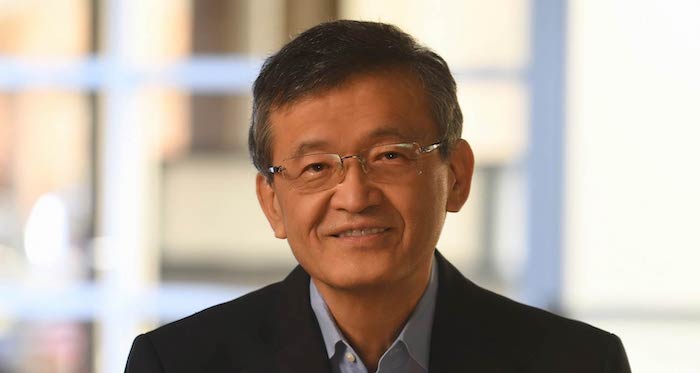Donald Trump has done a back-flip, after meeting with Intel’s chief executive Lip-Bu Tan on Monday.
Days after seeking his resignation, the US President ended up praising Tan and saying the meeting was “a very interesting one.”
Investors have taken this as good news for Intel and its ‘new’ boss and his efforts in recent months to rejig the chipmaker’s business. Shares of the company rose 3% in extended trading.
ALSO SEE: US and China Defer Tariff Surge, Extend Trade Truce For 90 Days
Last week, Trump had demanded the immediate resignation of Tan, calling him “highly conflicted” over his ties to Chinese firms, injecting uncertainty into the chipmaker’s years-long turnaround effort.
‘An amazing story’
Trump said he met with Tan, along with Commerce Secretary Howard Lutnick and Treasury Secretary Scott Bessent. His cabinet members and Tan were going to bring suggestions to him next week, Trump said in a post on Truth Social.
“His success and rise is an amazing story,” Trump said about Tan.
Tan had invested in hundreds of Chinese firms, some of which were linked to the Chinese military, Reuters reported exclusively in April.
It is not illegal for US citizens to hold stakes in Chinese companies unless they have been added to the US Treasury’s Chinese Military-Industrial Complex Companies List, which explicitly bans such investments.
Tan has been tasked to undo years of missteps that left Intel struggling to make inroads in the booming AI chip industry dominated by Nvidia, while investment-heavy contract manufacturing ambitions led to hefty losses.
In the roughly six months as Intel CEO, Tan made major strategic shifts that included divesting assets, laying off employees and redirecting resources.
But the demand for Tan’s resignation will only distract him from that task, investors and a former senior employee have told Reuters.
Tan is now making an effort to reassure Trump that he remains the right person to revive the storied American chipmaker.
Tan met with Trump for a candid and constructive discussion on the company’s commitment to strengthening US technology and manufacturing leadership, Intel said in a statement.
The company said it would work closely with the administration to “restore this great American company.”
Trump’s intervention marked a rare instance of a US president publicly calling for a CEO’s ouster and raised questions about his control over corporate affairs.
This was also evident in an agreement calling for Nvidia and AMD to give the US government 15% of revenue from China sales.
- Reuters with additional editing by Jim Pollard
ALSO SEE:
‘Conflicted’ Intel CEO Must Resign Over China Ties, Trump Says
US Unveils 100% Tariff on Imported Chips But Key Firms Exempt
Three Detained in Taiwan For Alleged Theft of TSMC Chip Secrets
Cadence and Nvidia Dealings in China Drawing Close Scrutiny
Chinese AI Firms, Chipmakers Form Alliance To Ditch Foreign Tech
Is the AI frenzy a hallucinatory bubble?
Nvidia CEO Says US Export Curbs on AI Chips is ‘Flawed’ Policy
China’s Xi Issues Rare Warning on Over-Investment in EVs, AI – FT
China Softens Tone on US Ties Amid Potential Thaw In Chip War
TSMC Sees 60% Profit Jump on AI Chip Demand, But Fears Tariffs
China Scrambles for Nvidia’s H20 Chips as Trump ‘Reverses’ Curbs
Nvidia’s Huang Says China’s Military ‘Can’t Rely on US Tech’
US Lawmakers Push Location-Tracking For High Powered AI Chips
























